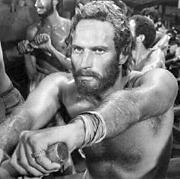WITH PARENTAL CARPING about sex, violence, and vulgarity in cinema reaching new heights, you might not have noticed that we’re coming off maybe the greatest year ever for animated family films. Recall The Iron Giant, Mulan, Princess Mononoke, Tarzan, and Toy Story 2 (granted, Pok魯n is Satan’s handiwork), and it’s fair to say that we’re enjoying a veritable ‘toon renaissance. With richer characters and authentic conflicts, the moral fiber of these films is that much thicker. The animation, ever evolving in style and science, has reached a uniformity of excellence. In other words, they’re real movies.
THE ROAD TO EL DORADO
directed by Eric Bergeron and Don Paul
with Kenneth Branagh, Kevin Kline, and Rosie Perez
opens March 31 at Meridian, Metro, Oak Tree
This flowering pretty much dooms the year’s first major animated release, The Road to El Dorado. Taking its unlikely cue from Cortes’ 1519 expedition that ended the Aztec empire with 400 conquistadors, smallpox, and a lust for gold, El Dorado is an exercise in avoidance. Focusing on Miguel and Tulio, a pair of adventurous rogues who discover the legendary City of Gold ahead of Cortes, the film tries to slap a sunny disposition on genocide. It doesn’t work—it can’t work—history lurks while the characters sing and rejoice in their jungle paradise.
Voiced with comic gusto by Kenneth Branagh (Miguel) and Kevin Kline (Tulio), our heroes swashbuckle through a rousing opening, barely escaping a Spanish mob after nabbing a treasure map, then stow away aboard Cortes’ galleon bound for the New World. Cortes makes an imposing villain; he’s huge, angular, and speaks in a booming voice. “My crew,” he says in fury, “has been chosen more carefully than the disciples of Christ.”
Dramatic stuff, but once we reach El Dorado, the musical numbers kick in—six pallid tunes sung by Elton John—and stop the narrative dead without offering the slightest emotional flourish. Written by The Lion King‘s Oscar-winning team (which includes John), the undistinguished score smacks of DreamWorks’ latent Disney-envy, as does the fact that many of its animators hail from the Mouse House. The animation, though familiar, is nonetheless detailed and impressive, especially in the several scenes depicting rushing water and roiling surf.
The most interesting and edgiest aspect of the film is the characterization of a fulsome Indian outcast named Chel (voiced by Rosie Perez) who seduces Tulio. As one corner of a love triangle, she’s alternately a cloying stereotype, an empowered sista, and an objectified jungle nymphette. Ostensibly there to attract the girls, she’ll undoubtedly attract a lot of boys. Still, her presence alone can’t offset a weak script and a blissfully ignorant denouement that, depending on your perspective, either perverts history, portends doom, or anticipates a straight-to-video sequel.








